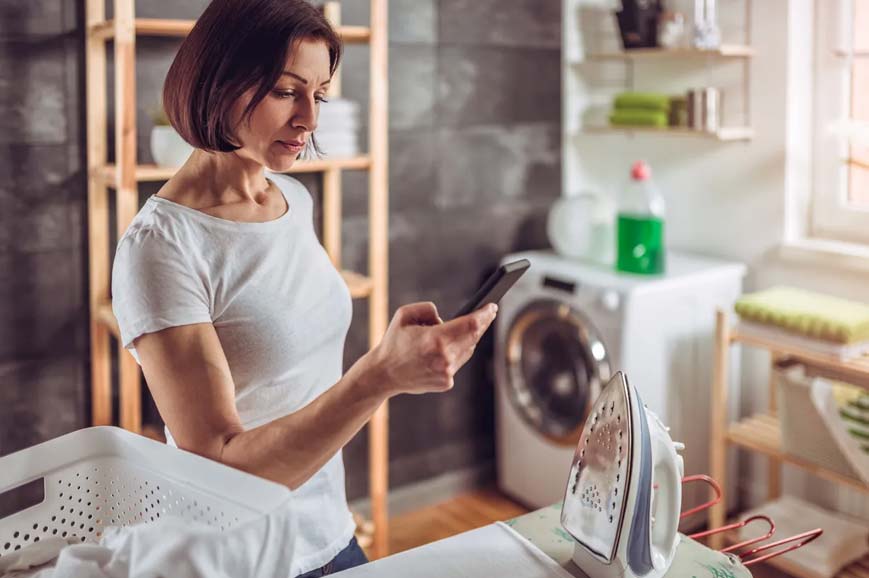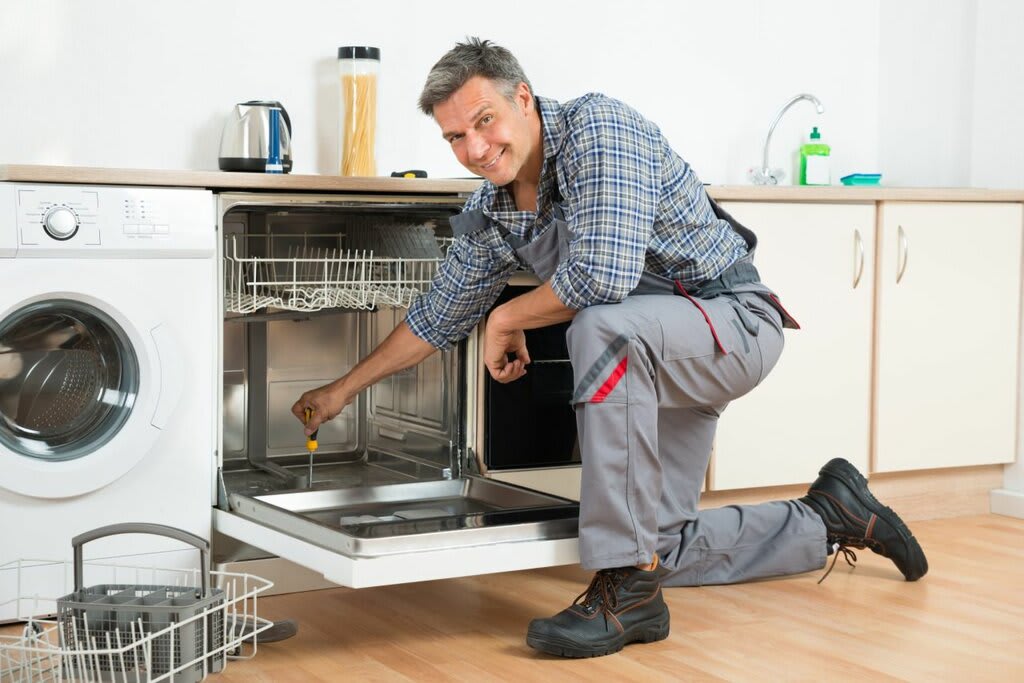What to Check When Your Fridge Isn’t Cooling – Dependable Refrigeration & Appliance Repair Service Washing Machine Repair
What to Check When Your Fridge Isn’t Cooling – Dependable Refrigeration & Appliance Repair Service Washing Machine Repair
Blog Article
The Ultimate Overview to Recognizing Home Appliance Repair at Home
When your fridge stops cooling down or your stove declines to heat, it can feel frustrating. Understanding device repair work at home can conserve you money and time. You'll learn to acknowledge signs and symptoms, make use of essential devices, and follow a methodical troubleshooting process. Prior to you start, there are essential safety preventative measures you need to take into account. What are one of the most typical issues, and how can you fix them? Allow's check out the basics.
Usual Home Appliance Issues and Their Signs
When your appliances begin breaking down, it's essential to recognize the indicators at an early stage. Overlooking them can cause bigger concerns and costly repairs. If your refrigerator isn't cooling effectively, you might see warm spots or condensation forming. This could suggest a failing compressor or a blocked vent.Your dish washer might reveal troubles through dirty meals or unusual noises throughout cycles. If you hear grinding or clanking, it's time to investigate.A washing machine that won't spin or drain can leave you with soggy laundry, suggesting a clogged up drainpipe or a malfunctioning pump.Lastly, if your oven's temperature seems off or it takes for life to pre-heat, you could be dealing with a malfunctioning thermostat. By staying alert to these signs, you can resolve problems before they rise into major repair work.
Necessary Tools for Home Appliance Repair Service
When you're dealing with home appliance repairs at home, having the right tools is important. Standard hand devices like screwdrivers and pliers will certainly assist you take apart and fix various devices, while electrical screening devices ensure you're working securely with electrical wiring. Let's discuss what you need to begin on your fixing journey.
Fundamental Hand Tools
Having the right tools is essential for reliable device repair work at home. Beginning with a trusted screwdriver set, consisting of both flathead and Phillips types, as screws are common in device assembly. Pliers are likewise important; they assist with gripping, twisting, and cutting cords or little components. A set of needle-nose pliers can reach tight areas conveniently. You'll need a great adjustable wrench for tightening or loosening up nuts and screws. An utility knife is helpful for cutting through product packaging or insulation. Don't forget a durable workbench or surface to safely organize your tools and components. With these standard hand tools, you'll be well-prepared to deal with most appliance repair services that come your means.
Electric Screening Tools
Alongside standard hand devices, electric screening tools play a vital role in appliance fixing. These devices help you diagnose electrical problems and assurance appliances work securely. A multimeter is crucial; it determines voltage, current, and resistance, permitting you to pinpoint problems swiftly. A non-contact voltage tester is one more must-have, letting you detect live wires without making direct contact, enhancing your safety. Secure meters are terrific for gauging current flow in cables without detaching them, saving you effort and time. In addition, circuit testers can swiftly check if outlets are working effectively. By using these tools, you'll streamline your troubleshooting procedure and enhance your repair skills, making device maintenance a whole lot much easier.
Step-by-Step Overview to Diagnosing Home Appliance Issues
When your home appliance acts up, it can be irritating, however diagnosing the issue does not have to be frustrating. You'll learn to identify common issues and use effective repairing methods. Allow's go through the actions to obtain your home appliance back in functioning order.
Usual Home Appliance Troubles

Troubleshooting Techniques Discussed

Fixing Significant Kitchen Appliances: A Closer Look
Have you ever before wondered how to tackle usual issues with your cooking area home appliances? Repairing significant kitchen area home appliances like refrigerators, ovens, and dishwashers can be less complicated than you assume. Beginning by identifying the problem-- whether it's a refrigerator not cooling down or an oven that won't heat up. Typically, a simple reset or inspecting the power resource can fix the issue.For refrigerators, tidy the condenser coils and examine the door seals. If your oven's not heating, inspect the burner and thermostat. Dishwashers may simply require a clean filter or a reset to get them back at work. Constantly unplug the appliance prior to diving right into repair work to guarantee your safety.Don' t neglect to speak with the individual handbook for specific fixing pointers related to your version. With a little patience and the right devices, you can confidently take on device fixings and conserve money at the same time!

Troubleshooting Laundry Devices: Tips and Techniques
When your washing devices start breaking down, it can really feel overwhelming, but repairing them doesn't need to be a headache. Begin by examining the power supply. Confirm the appliance is plugged in and the electrical outlet is operating. Next off, inspect the door or lid button; a faulty switch can stop the machine from operating.For washing machines, if it's not spinning, examine for unbalanced lots. Rearranging the garments might address the concern. If your clothes dryer isn't heating, clean the dust filter and check the vent for blockages.Listen for uncommon sounds; they can show a trouble. If your device is dripping, inspect the tubes for fractures or loose links. Record any kind of mistake codes presented on digital screens, as they can direct you in identifying the issue. Ultimately, consult the individual manual for specific repairing pointers associated with your model.
Safety Preventative Measures to Take During Fixes
Before you begin any kind of device fixings, it's necessary to prioritize safety to stop accidents or injuries. First, disconnect the device or transform off the circuit breaker to assure no power reaches it while you work. Usage shielded tools to decrease the risk of electrical shock. Use safety and security goggles and handwear covers to safeguard on your own from sharp edges or debris (Dependable Refrigeration & Appliance Repair Service Washer repair near me).Make particular your work area is tidy and well-lit, so you can see what you're doing. Maintain youngsters and animals far from the area to try this website avoid diversions and prospective risks. If you're dealing with gas home appliances, be added mindful; check for leakages before proceeding.Take your time, and do not hurry through repair services. If you feel unsure concerning any type of action, why not try here it's better to stop and research than to presume. Complying with these preventative measures will assist develop a more secure setting for your do it yourself appliance repair work task
When to Call a Specialist for Aid
How do you understand if it's time to hire an expert for home appliance repair services? If you've attempted fundamental troubleshooting without success, it's a clear indication. For example, if your home appliance still won't begin or shows unusual noises after resetting it, do not hesitate to look for expert help.When you see leakages, smoke, or melting smells, focus on safety and security and call a pro promptly. These issues can bring about more significant damage or present risks to your home.Also, if your device is under warranty, getting in touch with a professional is usually the finest route. They can assure that repairs won't void your warranty, saving you money in the lengthy run.Finally, if you're unclear or uneasy with intricate fixings, it's important to leave it to the professionals. Bear in mind, taking on complex concerns without the best knowledge can cause expensive errors. Trust an expert when doubtful!
Frequently Asked Concerns
How Can I Protect Against Home Appliance Troubles in the Future?
To stop appliance problems in the future, you should perform routine maintenance, look for deterioration, tidy filters, and prevent overloading. Staying proactive will certainly help extend their life expectancy and keep them running smoothly.
What Are one of the most Typical DIY Appliance Repair Work Mistakes?
You may ignore safety preventative measures, avoid fixing steps, or make use of inaccurate devices when attempting DIY device repair work. Rushing the procedure or ignoring supplier standards can bring about even more considerable concerns and pricey mistakes. Stay client and notified!
How Do I Know if a Part Demands Replacement?
You can inform if a component requires replacement by examining for unusual noises, leaks, or irregular performance. If the appliance has a hard time to operate correctly or shows noticeable damage, it's likely time for a replacement.
Can I Utilize Generic Components for Appliance Repair Works?
Yes, you can use common parts for appliance repair work, but identify they're compatible - Dependable Refrigeration & Appliance Repair Service Dryer repair near me. Common parts may save you cash, however they might influence efficiency or durability, so consider your alternatives thoroughly prior to deciding
What Service Warranties Cover Home Appliance Fixes?
Most device warranties cover repair work for manufacturing flaws, yet they usually leave out damage from abuse. Examine your warranty terms very carefully, as some could call for using qualified technicians and initial parts for insurance coverage to remain legitimate.
Report this page